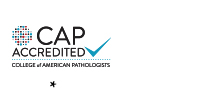Welcoming a new baby into the world is an exciting and joyous event for any family. Along with the excitement comes a desire to ensure your newborn is always healthy. Have you ever wondered how doctors can identify health issues in newborns so early? It’s done through newborn screening tests. These tests play a crucial role in detecting inherited metabolic disorders before any symptoms appear, giving the baby the best chance for a healthy start in life. MedGenome offers BabySecure, an advanced Newborn Screening test to secure the baby from the impact of inherited disorders.
What is the BabySecure Newborn Screening test, and why is it important?
It is a simple test done 24 hours after (not before) a baby is born to identify serious metabolic disorders the baby might have been born with. These disorders, if undetected and untreated, can have adverse consequences for the baby. If a baby is born with a disorder, BabySecure helps identify it early so treatment can start before it causes any harm.
BabySecure Newborn Screening Test Methodologies
- Heel Prick Test (Dried Blood Spot): The heel prick test, also known as the dried blood spot test, is the most common neonatal screening test. A healthcare professional pricks your baby’s heel, which is painless, and collects a few drops of blood on a special filter paper. The paper is allowed to dry and sent to the MedGenome lab, where tests are performed using Tandem Mass Spectrometry (TMS) and basic conditions using Time-Resolved Fluoroimmunoassay (TR-FIA). This tiny sample holds the key to identifying various metabolic conditions.
- Urine Test: It is a simple test done on urine using the Gas Chromatography Mass Spectrometry (GCMS) platform. This test is usually conducted as a follow-up or confirmatory test after the heel prick test. Urine samples from a newborn can be collected by placing the special filter paper card in the baby’s diaper, or urine samples can be collected in a sterile urine container (10-20 ml) and dipping the special filter paper card.
Disorders covered in BabySecure Newborn Screening Test:
BabySecure, an advanced newborn screening test provided by MedGenome labs, covers the screening for more than 100+ inherited metabolic disorders in the baby. These disorders are inherited and cannot be prevented but are treatable. This test covers disorders like:
- Fatty Acid Oxidation Disorders
- Amino Acidopathies
- Organic Acid Disorders
- Severe Combined Immunodeficiency (SCID)
- X-linked Adrenoleukodystrophy (X-ALD)
- Congenital Hypothyroidism (CH)
- Congenital Adrenal Hyperplasia (CAH)
- Cystic Fibrosis (CF)
- Galactosemia (GAL)
- Phenylketonuria (PKU)
- Biotinidase Deficiency (BTD)
- Sickle Cell Disorders, Thalassemias, and Other hemoglobinopathies
- Mitochondrial lactic acidosis
- Disorder of sugars
- Disorders of Purine and Pyrimidine Metabolism
Some of the common conditions are explained below:
- Phenylketonuria (PKU): Phenylketonuria (PKU) is a rare inherited disorder that affects the body’s ability to break down an amino acid called phenylalanine. This amino acid is found in many protein-rich foods and some artificial sweeteners. If left untreated, phenylalanine can build up in the blood and cause serious health problems, including brain damage and intellectual disabilities.
- Congenital Hypothyroidism: Congenital hypothyroidism is a condition present at birth where a newborn’s thyroid gland doesn’t produce enough thyroid hormone, which is essential for growth and brain development. This condition can lead to serious physical and mental developmental issues if not detected and treated early.
- Cystic Fibrosis: Cystic Fibrosis (CF) is a genetic disorder that primarily affects the lungs and digestive system. It causes thick, sticky mucus in the lungs and digestive tract, leading to severe respiratory and digestive problems over time. However, prompt action can improve quality of life and longevity.
- Sickle Cell Disease: Sickle Cell Disease (SCD) is a genetic blood disorder affecting hemoglobin, the molecule in red blood cells responsible for carrying oxygen throughout the body. In individuals with SCD, hemoglobin molecules are abnormal, causing red blood cells to become rigid and sickle-shaped instead of flexible and round. These misshapen cells can block blood flow, leading to pain episodes, organ damage, and a higher risk of infections.
- Maple Syrup Urine Disease (MSUD): Maple Syrup Urine Disease (MSUD) is a rare genetic disorder. It prevents the body from breaking down certain amino acids, leading to a buildup of these substances in the blood. This buildup can cause serious health issues, including neurological problems, if left untreated. The condition gets its name from the sweet-smelling urine it produces.
- Medium-Chain Acyl-CoA Dehydrogenase Deficiency (MCADD): Medium-Chain Acyl-CoA Dehydrogenase Deficiency (MCADD) is a genetic disorder that affects the body’s ability to break down certain fats for energy. Babies with MCADD may appear healthy initially but can experience severe symptoms such as vomiting, lethargy, and even seizures if not managed properly. This condition requires careful monitoring of therapies to prevent life-threatening conditions.
- Biotinidase Deficiency (BTD): It is a rare genetic condition that affects the body’s ability to recycle biotin, a crucial vitamin necessary for breaking down fats, proteins, and carbohydrates. If left untreated, this deficiency can lead to various symptoms, including skin rashes, hair loss, neurological problems, and developmental delays.
- Severe Combined Immunodeficiency (SCID): Severe Combined Immunodeficiency (SCID) is a rare genetic disorder where babies are born without a functional immune system, leaving them extremely vulnerable to infections. Without early detection and treatment, these infants face severe health risks.
How BabySecure Newborn Screening Tests Benefit Newborns
- Early Intervention: Early intervention is a cornerstone of newborn screening tests, allowing healthcare providers to initiate specific treatments. These interventions, including dietary adjustments, hormone therapies, and tailored lifestyle management for conditions, play a crucial role in enhancing health outcomes right from birth. This proactive approach improves outcomes, reduces the severity of health complications, and creates a chance for a better quality of life and cost-effective healthcare. It also gives parents peace of mind knowing their child’s health is well looked-after.
- Improved Quality of Life: Early screening of newborns plays an important role in improving their quality of life in many ways. Early knowledge of a condition allows families to plan for necessary medical care, support services, and educational interventions. It also reduces the uncertainty and anxiety that families experience when facing potential health challenges, creating a more stable and positive environment for the child’s development.
- Parental Peace of Mind: Knowing that your baby has been thoroughly screened for potential health issues will give you immense peace of mind as a new parent.
- Reassurance: Early screening reassures parents that their baby is healthy or that any issues will be managed effectively.
- Preparedness: In case of a positive screening result, parents can prepare for necessary treatments and interventions, ensuring the best outcomes for their child.
Conclusion: BabySecure Newborn screening tests are powerful for safeguarding your baby’s health. These simple procedures pave the way for a healthy and fulfilling life for your little one. Trust MedGenome lab for accurate and thorough screening services backed by cutting-edge technology and a dedicated team of experts. Do not leave your child’s health to chance—reach out to MedGenome today to learn more and schedule your newborn’s screening. Your baby’s well-being is our priority.
For more information on the BabySecure Newborn screening test, please write to MedGenome labs at diagnositcs@medgenome.com. For any technical or test-related queries, please write to techsupport@medgenome.com or call 1800 296 9696








